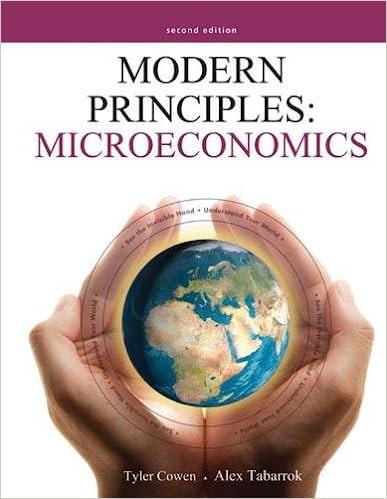1.4. In the short, readable classic Congress: The Electoral Connection, David Mayhew uses the basic ideas of...
Question:
1.4. In the short, readable classic Congress: The Electoral Connection, David Mayhew uses the basic ideas of incentives and information as a pair of lenses through which to view members of Congress. What he saw was quite simple:
The urge for reelection drives everything. Thus, members are driven by self-interest to give the voters in their home district as much as possible.
Of course, voters face the same problem in judging members of Congress that any manager faces when evaluating an employee: Some outputs are harder to measure than others, so voters focus on measurable outputs. With that in mind, what will voters be most likely to care about? Choose one from each pair and briefly explain why you made that choice.
a. How many dollars come to the district for new hospitals and highways vs. how many dollars are spent on top-secret military research.
b. How well the member behaved in private meetings with Chinese leaders vs. how the member sounded on Meet the Press.
c. How well the member did in reforming the Justice Department vs. how well the mem ber did at the Turkey Toss back in the dis trict last Thanksgiving.
(As you've seen, voters' focus on the vis ible can easily drive the member's entire ca reer. Mayhew's book was an important early work in "public choice," the use of basic microeconomic ideas like self-interest and strategy to study political behavior. For more on the topic, Kenneth Shepsle and Mark Bonchek's short textbook Analyzing Politics is highly recommended. See also Chapter 19 of this textbook.)
Step by Step Answer:

Modern Principles Microeconomics
ISBN: 9781429239998
2nd Edition
Authors: Tyler Cowen, Alex Tabarrok






